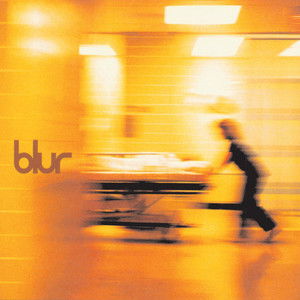Song Stories: Blur: Beetlebum
When Blur released 'Beetlebum' in January 1997, it was more than just a new single; it was a statement of intent, and arguably, the moment they saved their career and killed Britpop in one swoop.
1995 and 1996 had been all about Britpops peers and rivals Oasis, and Pulp. Despite a Number One Single in 1995 with 'Country House' and songs like 'The Universal' and 'Charmless Man', some saw 'The Great Escape' as a failure compared with what had come before, the band also weren't particulary impressed with the album. Oasis meanwhile had released 'Whats the Story (Morning Glory) and played two sold out nights at Knebworth. Pulp had released 'Common People', and 'Different Class' and played one of the greatest Glastonbury Headline performances ever.
Blur needed to do something special, and they definitley did. The lead single from their self-titled album 'Blur' felt like a sharp left turn. Gone were the cheeky, hyper-British anthems like 'Parklife' and 'Country House' that had defined the band's place at the top of the Britpop wave. Instead, 'Beetlebum' was a hazy, introspective, and deeply personal track, influenced by Damon Albarn’s experiences with heroin and the emotional fallout of his relationship with Justine Frischmann of Elastica.
Its sleepy, narcotic drift laced with Graham Coxon's fuzzed-out guitars and Alex James' lazy bass created a sound that felt heavier, darker, and unmistakably more real. This wasn’t the sound of Britpop’s champagne-soaked celebrations; it was the signal of the 'Death of the Party'.
Despite this new approach and sound, 'Beetlebum' soared to Number 1 on the UK Singles Chart. Blur burst Britpop’s bubble, but in doing so, they found a new artistic freedom that arguably saved them from becoming caricatures of themselves. By stepping away from the cartoonish nationalism that Britpop had become, Blur avoided the fate that would soon befall many of their peers including Oasis. Instead of clinging to a dying scene, they evolved and the risks they took with 'Blur' set them up for continued success, influencing an entire generation of British music.

The 'Blur' album continued the revolution. Tracks like 'Song 2', a two-minute blast of distorted guitars and Albarn’s famous "Woo-hoo!" yells, proved the band could play rough and messy with the best of the American grunge and alt-rock bands. Originally almost a joke, 'Song 2' exploded into a global hit, giving Blur the U.S. breakthrough they had long struggled for.
Meanwhile, songs like 'On Your Own' hinted at an even bigger transformation to come. Built on drum machines, scratchy guitars, and Albarn’s detached, half-rapped vocal delivery, 'On Your Own' was a clear prototype for what would soon become Gorillaz. It showcased Albarn’s growing fascination with hip-hop, electronic textures, and storytelling through characters. All elements that would define his work outside of Blur.
By rejecting the polished, patriotic sound that had made them famous, Blur found a second life. 'Beetlebum' wasn’t just a daring single; it was the key to their survival. In killing off Britpop, Blur didn’t just end an era — they reinvented themselves and opened up endless new possibilities. Without 'Beetlebum', there might have been no 'Song 2', no 'Blur' album as we know it, and perhaps no Gorillaz either.
Critically, the gamble paid off. 'Blur' was praised as a brave, necessary reinvention at a time when most of their Britpop peers were beginning to stagnate. Having successfully reinvented themselves with 'Blur', the band doubled down on introspection and experimentation. Their next album, '13', released in 1999, was even messier, even more emotionally intense.
Built around the aftermath of Albarn’s breakup with Frischmann, and Coxon's battle with alcoholism '13' was a turbulent listen. Songs like 'Tender', 'Coffee & TV', and 'No Distance Left to Run' saw Blur pulling further away from their past, layering gospel choirs, electronic textures, and fractured guitar sounds.
'Beetlebum' marked a turning point in not only Blur's career but served as an important song for all of it's members it gave them the confidence to embace new ideas and sounds. It led to Blur starting a new chapter and also helped Albarn start to work on something new.
It's one of the bands best pieces of work and one of the greatest songs of the 1990s.
Thank you for reading.
Jack